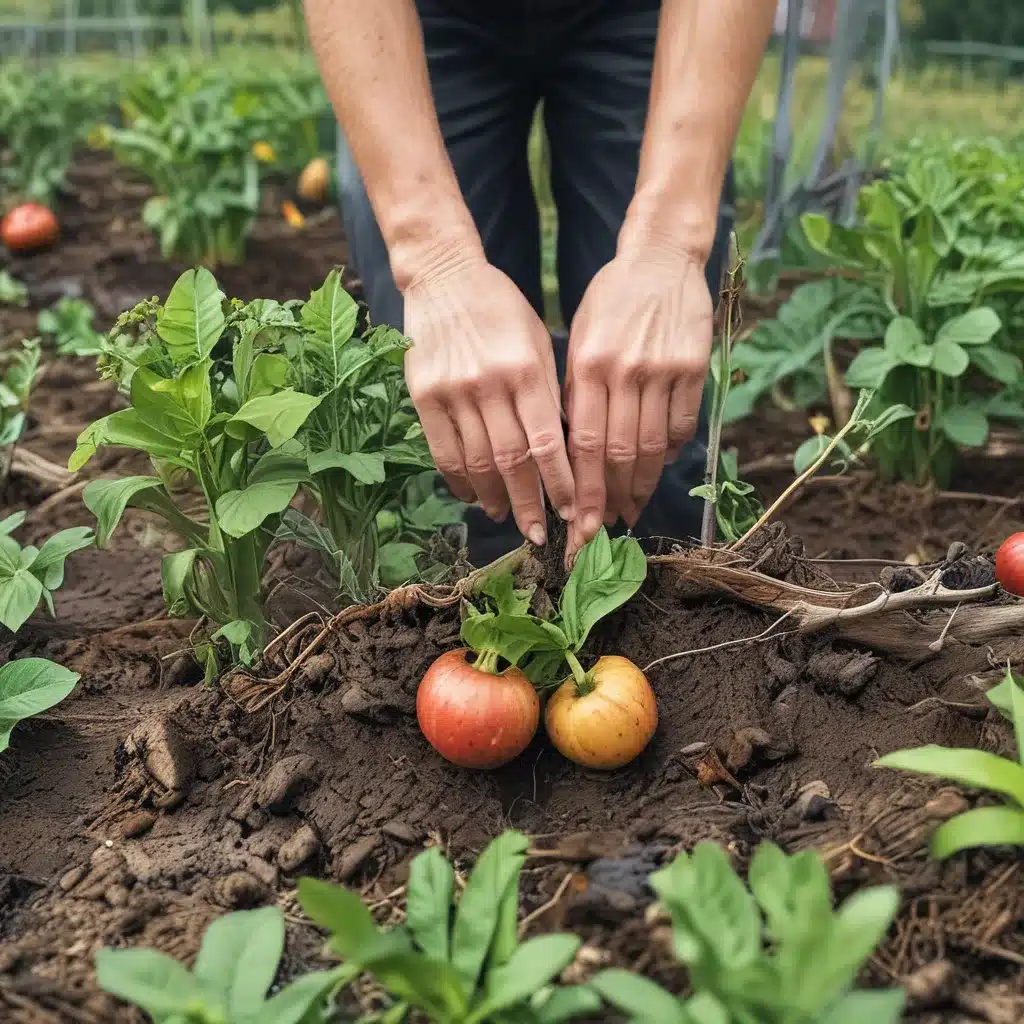
As a longtime member of the Thornapple Community Supported Agriculture (CSA) service, I’ve witnessed firsthand the incredible transformation the farm has undergone in recent years. What was once a quaint family-owned operation has blossomed into a thriving, climate-resilient oasis that not only nourishes our local community, but also serves as a beacon of hope for the future of sustainable agriculture.
Adapting to a Changing Climate
When I first joined the Thornapple CSA, the farmers, Sarah and John, were grappling with the unprecedented challenges posed by a shifting climate. Erratic weather patterns, prolonged droughts, and late-season freezes had taken a toll on their once-reliable crop yields, threatening the very foundation of their livelihood.
Research from the African Development Bank indicates that climate change can have far-reaching impacts on agricultural systems, from altering growing seasons to increasing the prevalence of pests and diseases. Thornapple CSA faced these very same obstacles, but instead of succumbing to the challenges, Sarah and John chose to embrace the power of innovation.
Embracing Climate-Smart Farming
One of the first steps Thornapple CSA took was to implement a comprehensive integrated pest management (IPM) plan. Drawing inspiration from the strategies outlined in the Integrated Pest Management Plan for the Aweil Rice Scheme, the farmers began to diversify their crop rotation, incorporate beneficial insects, and reduce their reliance on synthetic pesticides.
The results were nothing short of remarkable. By taking a more holistic approach to pest control, Thornapple CSA was able to dramatically reduce their environmental footprint while maintaining the health and vibrancy of their crops. As an added bonus, the farm’s produce became even more nutrient-dense, delighting the taste buds of our community members.
Cultivating Soil Health
But the farmers didn’t stop there. Recognizing the vital role that healthy soil plays in the overall resilience of their agricultural system, Thornapple CSA embarked on a mission to regenerate their soil through sustainable practices.
Research from the Spokane Food Policy Council highlights the importance of building soil organic matter and maintaining microbial diversity, both of which are key to enhancing a farm’s ability to withstand the effects of climate change. Thornapple CSA took these principles to heart, implementing cover cropping, reduced tillage, and compost application to nourish the soil and promote a thriving ecosystem beneath the surface.
The transformation was nothing short of remarkable. As the soil health improved, the farm’s crops became more robust and resistant to environmental stressors. Yields increased, and the produce became even more nutrient-dense, providing our community with an abundance of wholesome, flavorful foods.
Diversifying for Resilience
But Thornapple CSA’s climate-smart strategies didn’t stop there. Recognizing the importance of diversification in building resilience, the farmers began to experiment with a wider variety of crops and livestock. They introduced heritage breed chickens, goats, and even a small herd of cattle, each playing a crucial role in the overall sustainability of the farm.
According to the City of Grand Rapids’ Fiscal Plan, diversified agricultural systems are better equipped to withstand the challenges posed by climate change, as they can more effectively distribute risk and leverage the natural synergies between different enterprises.
At Thornapple CSA, the integration of livestock and diverse crop rotations has had a transformative effect. The animals’ manure enriches the soil, while the crops provide them with a balanced, nutrient-rich diet. The result is a vibrant, self-sustaining ecosystem that is well-equipped to weather the storms of a changing climate.
Engaging the Community
But Thornapple CSA’s climate-smart approach goes beyond the boundaries of the farm itself. The farmers have also made a concerted effort to engage the local community, sharing their knowledge and inspiring others to adopt more sustainable practices.
Through regular farm tours, educational workshops, and community events, Sarah and John have become ambassadors for climate-resilient agriculture, empowering our neighbors to take an active role in the future of our food system. They’ve even partnered with local schools, teaching the next generation about the importance of regenerative farming and the role they can play in building a more sustainable future.
A Thriving Future
As I walk through the lush, vibrant fields of Thornapple CSA, I can’t help but feel a sense of awe and optimism. What was once a struggling operation has now blossomed into a thriving, climate-resilient oasis – a true testament to the power of innovation, community engagement, and a deep respect for the natural world.
The journey has not been an easy one, but the rewards are simply remarkable. The farm’s produce is more flavorful and nutritious than ever before, and the sense of community that surrounds Thornapple CSA is stronger than ever. It’s a model of sustainability that I hope will inspire others to follow in their footsteps, creating a network of resilient, climate-smart farms that can nourish our communities for generations to come.
If you’re interested in learning more about Thornapple CSA and their climate-smart strategies, be sure to visit their website at thornapplecsa.com. Who knows, you might just find yourself joining the growing ranks of dedicated CSA members, reaping the benefits of this truly remarkable farm.



